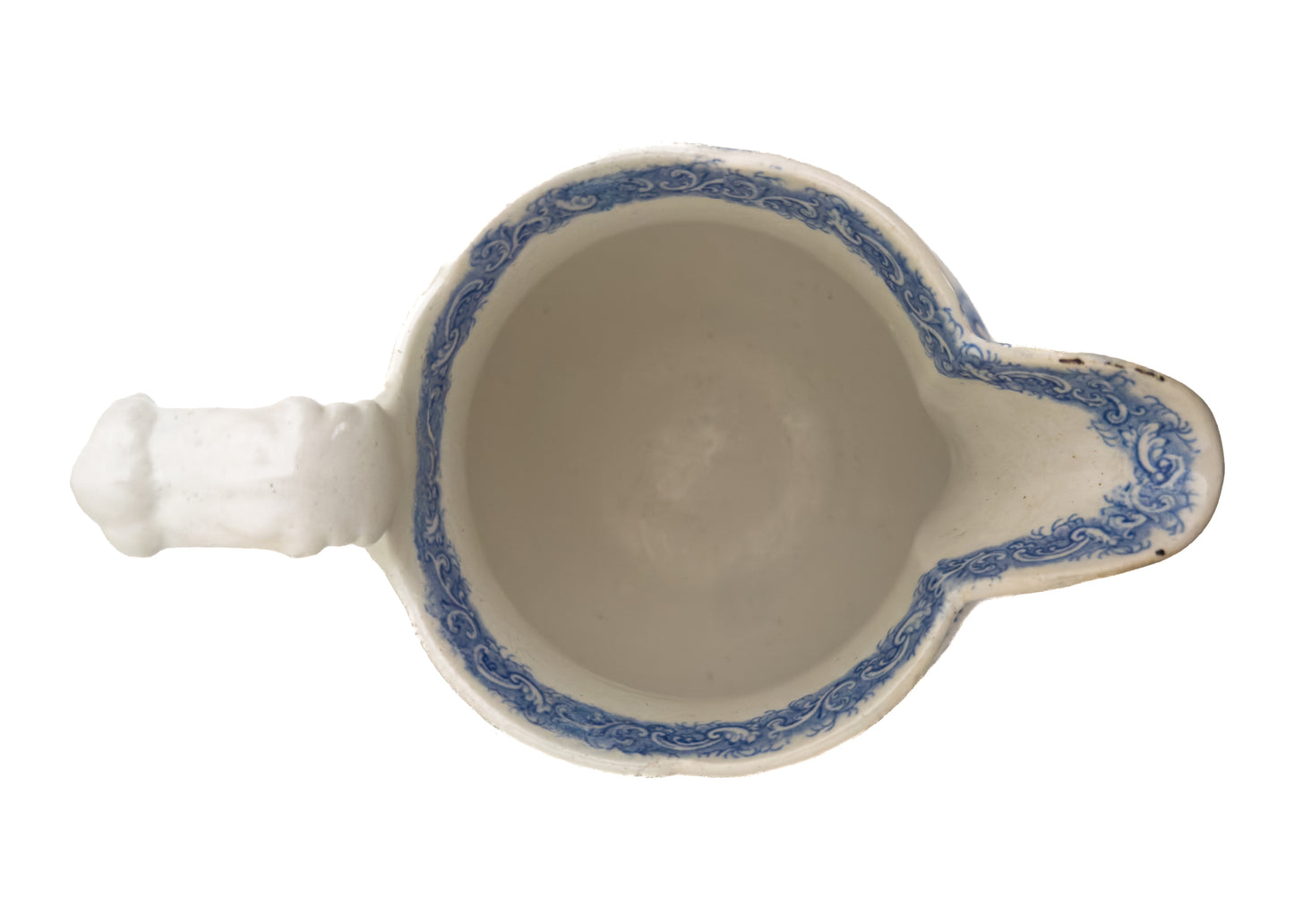Specs Fine Books
1838 ELIJAH P. LOVEJOY. Staffordshire Pair Commemorating The Anti-Slavery Martyr & Abolitionist Press.
1838 ELIJAH P. LOVEJOY. Staffordshire Pair Commemorating The Anti-Slavery Martyr & Abolitionist Press.
Couldn't load pickup availability
An absolutely beautifully preserved pair of Staffordshire porcelains produced in the direct aftermath of the murder of Elijah P[arish] Lovejoy in 1837.
Lovejoy founded the abolitionist paper, The St. Louis Observer, which he printed himself just across the border in anti-slavery Alton, Illinois. In 1837, his warehouse and printing house were mobbed by a pro-slavery group from Missouri, he was shot, and his abolitionist materials destroyed.
This had the double-effect of both making Lovejoy a martyr of the abolitionist movement and causing the abolitionist movement to double down on the press and distribution of material as their primary means of promoting the end of slavery.
John Quincy Adams said the murder "[gave] a shock as of an earthquake throughout this country." The Boston Recorder wrote that "these events called forth from every part of the land 'a burst of indignation which has not had its parallel in this country since the Battle of Lexington." Perhaps most critically, it was upon being informed of the murder that the now-famed John Brown declared publicly: "Here, before God, in the presence of these witnesses, from this time, I consecrate my life to the destruction of slavery." In a very real way, the murder of Elijah P. Lovejoy marked the beginning of the end of slavery.
Almost immediately, probably in 1838, Staffordshire issued a pair of commemorative ceramics to help galvanize abolitionist energy around the moment. Both are present here.
The first is a charming creamer jug measuring 4.25" tall and 6" wide handle to spout. The front, handle to the right, depicts Lady Liberty next to the now-fabled Lovejoy printing press with the classic abolitionist symbol of a kneeling African American at her feet and discarded whip at bottom center. Evoking an apocalyptic or heavenly context for the abolitionist cause, the entire scene is set in the clouds.
At the head of the scene, it reads, "The Tyrants' Foe," and below "The People's Friend," referencing the abolitionist press.
The reverse is printed with the stylized text of the First Amendment to the United States Constitution. "Congress shall make no law respecting an establishment of religion; or prohibiting the free exercise thereof; or abridging the freedom of speech. Or of the Press; Or the right of the people peaceably to assemble; And to petition the Government for a Redress of Grievances. Constitution. U.S."
In near fine condition with a professionally performed blind repair to handle, all but invisible, and some minor abrasions on spout.
The second is a near matching plate measuring c.9 inches across. In the top central cartouche it has the same heavenly scene as the front of the creamer, the praying slave, lady liberty, the whip, and printing press with "The Tyrants' Foe" and "The People's Friend" above and below. In the left outer cartouche, "We hold that all men are created equal." In the right, "Of one blood are all notes of men." In the lower central the scales of justice. And in the central the repeated First Amendment to the Constitution of the United States.
The British Museum owns an example of the same plate, Yale a smaller version of the plate with some variations, the Spurlock Museum at the University of Illinois owns a similar creamer with some variations. And the Henry Ford Museum owns a slightly variant pitcher.
Very reasonably priced for the pair and beautifully preserved for the collector or institution. An example of the identical ceramic pitcher alone [sans plate] in inferior condition to the one offered here sold in 2021at Hake's Auction for just $3,470.00 [Auction #231. February 24, 2021. Lot 3].
Share










